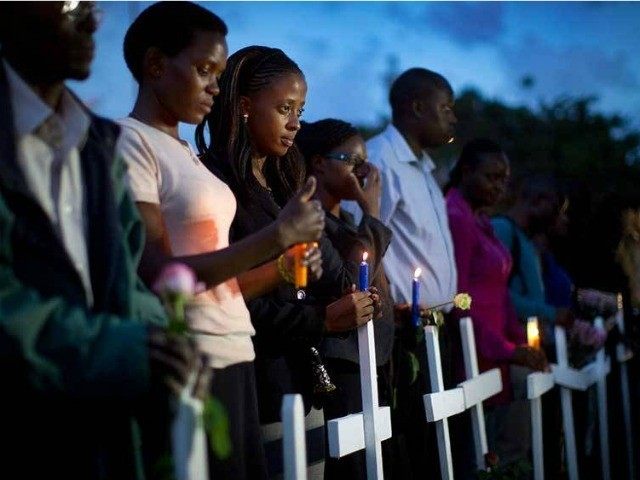Kenya’s oldest newspaper, The Standard, reports that the Iranian government warned Kenyan officials that the Somali terrorist group Al-Shabaab was planning to attack Garissa University a week before four gunmen stormed the campus and killed 148 students. Reports of Iran’s connections to Al-Shabaab have been circulating for years.
While reports that Kenyan officials were aware of Al-Shabaab posing a threat to campuses generally began surfacing as soon as reports of the attack itself arose, The Standard claims that Iranian officials told Kenya’s government that Garissa University was being specifically targeted. The newspaper cites “a diplomat from a Middle East nation, who asked not to be named” as stating that “the Iranian intelligence supplied intelligence about an impending attack more than a week before the Garissa attack… the Iranians had gathered information that Al-Shabaab was planning a massacre of Christians in Mombasa, Nairobi and Garissa during Easter.”
The Standard notes that Kenyan officials did attempt to increase security at Garissa, going so as far as to fill the campus with signs, telling students to cooperate with increased security measures in light of new potential attacks. Reports indicate that many students thought the posters were April Fool’s jokes.
“The fact that security was increased at GUC means that they received the intelligence information. It is only that the officers were overwhelmed,” The Standard quotes Senior Director of Public Communication at State House, Munyori Buku, as stating. The paper notes that Kenyan officials have refused to confirm their report on the record, but multiple anonymous sources stated that “Kenya’s and Iran’s intelligence apparatus have grown closer lately out of mutual interest,” a development Kenya has kept out of the headlines for fear of irking Western governments amid nuclear negotiations with Iran and their role in destabilizing neighboring Yemen.
Publicly, Iran and Kenya have been open about attempts to increase their trade volumes, with Iranian Foreign Minister Mohammed Javad Zarif visiting Nairobi in February to discuss their respective economies. National security has not been cited as a major topic of discussion among the two nations.
Older reports indicate that Iran has not been helping the Kenyan government, but Al-Shabaab. In 2013, United Nations monitors accused Iran of providing weapons to Al-Shabaab, reporting that they had found weapons in Somalia manufactured in North Korea and Iran believed to have arrived there through Libya. The Reuters report on Iran’s ties to Al-Shabaab notes also that Iran had already begun arming Shiite rebels in Yemen at the time.
In addition to UN reports that year, a columnist for Turkey’s Zaman newspaper quoted “an Ankara-based African ambassador” claiming “Iranian clandestine operations” were aiding terrorists in Somalia, and may have had a hand in Al-Shabaab’s execution of a terrorist attack on Nairobi’s Westgate Mall that year.
The Iranian government responded to both accusations by decrying them as “absurd fabrications.”
In addition to the Standard‘s claim that the Iranian government is attempting to strengthen intelligence ties with Kenya despite former accusations of arming Al-Shabaab, other Kenyan newspapers are reporting on an intelligence report alleging that former Kenyan Prime Minister Raila Odinga is paying Al Shabaab terrorists to stage attacks, so as to bolster a future candidacy. The conspiracy theory appeared in both the Kenyan Post and The Star, and also accuses Nigerian President-elect Muhammadu Buhari of striking a similar deal with Boko Haram to win his election. Like the Standard report, these point to Iran as the source of the intelligence report. Iran has denied leaking the report, circulating on social media.
Whether Kenyan authorities took measures to prevent the Garissa attack or not, their reaction has been universally panned as insufficient and unfathomably slow. Law enforcement officials took seven hours to reach the Garissa University campus after receiving the first emergency signal, traveling more than 200 miles from Nairobi rather than dispatching a more local force. Said commenter Patrick Gathara: “We have refused to learn from the Westgate attack. What was the Kenyan army doing for seven hours before the Recce team came in? Were they just hanging about?”
One law enforcement official appeared to place part of the blame for the high number of deaths at Garissa University on the victims themselves in a press conference last week, advising Kenyans that, should they ever find themselves in a terrorist siege, not to “be killed like cockroaches.”

COMMENTS
Please let us know if you're having issues with commenting.